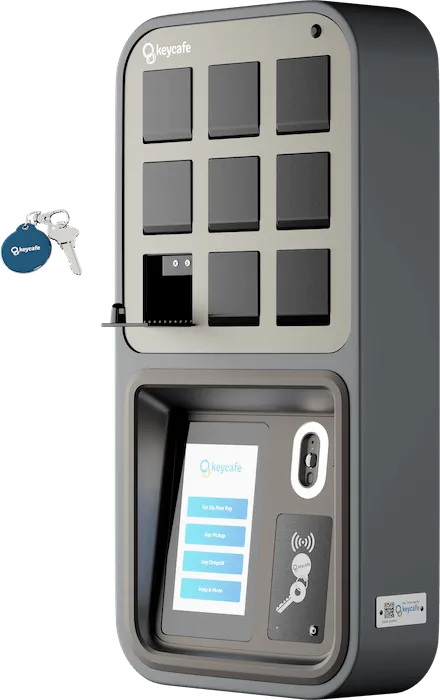0 minutes
Écrit par
Diane Mamani
Publié le
April 15, 2025
Publié le
April 15, 2025
Modifié le
November 28, 2025
Retour


Les gestionnaires de flotte recherchent constamment des moyens de réduire les coûts sans compromettre les performances ou la sécurité. Cette liste est organisée des stratégies les plus simples à celles qui nécessitent plus de temps ou d'investissement, afin que vous puissiez prendre des mesures en fonction de vos priorités actuelles.
Une marche au ralenti excessive contribue au gaspillage de carburant, à l'usure du moteur et aux émissions. Les systèmes télématiques peuvent identifier les ralentissements habituels et alerter les responsables en temps réel. Combinées à des politiques de coaching des conducteurs et d'arrêt automatique des moteurs, les flottes peuvent réduire considérablement les coûts de carburant et prolonger la durée de vie des véhicules.
Les coûts de carburant constituent l'un des éléments les plus importants de l'exploitation d'une flotte. Les plateformes télématiques permettent de surveiller le comportement des conducteurs, l'efficacité des itinéraires et les temps d'inactivité. Associer ces données à la formation continue des conducteurs peut réduire la consommation de carburant jusqu'à 25%, tout en améliorant la sécurité et en réduisant les émissions. Selon le Département de l'Énergie des États-Unis, une conduite agressive peut réduire la consommation d'essence de 15% à 30% sur les autoroutes et de 10% à 40% dans les embouteillages.
Les clés égarées entraînent une perte de productivité, des risques de sécurité et des dépenses inutiles pour les remplacements et les renouvellements de clés. Un système de gestion des clés de flotte basé sur le cloud élimine les processus manuels, améliore la responsabilisation et réduit les temps d'arrêt liés aux clés. Grâce au suivi en temps réel, au contrôle d'accès basé sur les rôles et aux pistes d'audit numériques, vous empêcherez les utilisations non autorisées et simplifierez la répartition des chauffeurs.
Qu'il s'agisse de l'enregistrement des conducteurs, de la remise des clés ou du suivi du journal de bord, les processus manuels font perdre du temps et introduisent des erreurs. Les systèmes automatisés pour des éléments tels que l'accès par clé, les inspections avant le voyage et l'enregistrement du kilométrage simplifient les opérations et réduisent les coûts administratifs.
Les temps d'arrêt imprévus peuvent coûter des centaines de dollars par véhicule et par jour. Adoptez un programme de maintenance préventive basé sur les données d'utilisation en temps réel et les recommandations du fabricant. La maintenance proactive aide les flottes à réduire les pannes et à prolonger la durée de vie des véhicules tout en réduisant les coûts totaux du cycle de vie. Utilisez un logiciel pour planifier l'entretien en fonction des besoins opérationnels, en minimisant les perturbations de vos itinéraires et de votre productivité.
Des itinéraires inefficaces se traduisent par des trajets plus longs, une consommation de carburant plus élevée et des périodes de service manquées. Le logiciel d'optimisation des itinéraires prend en compte le trafic, la météo, la charge et l'emplacement pour générer les horaires les plus efficaces. Une étude réalisée par Geotab montre qu'un itinéraire optimisé peut réduire le kilométrage jusqu'à 20%, ce qui permet de réduire la consommation de carburant, les émissions et d'améliorer les performances de livraison. Combiné au suivi des véhicules, cela garantit que vos actifs sont utilisés à leur plein potentiel.
Une flotte surdimensionnée ou sous-utilisée entraîne une perte de capital et de budget d'exploitation. Réalisez un audit d'utilisation de la flotte pour identifier les véhicules qui peuvent être réutilisés, mis en commun ou retirés. Le redimensionnement vous permet de conserver le bon nombre et le bon type de véhicules pour répondre à la demande, rien de plus, rien de moins.
La disparité des systèmes et la saisie manuelle des données sont source d'inefficacité. L'intégration de vos outils de gestion de clés, de télématique, de maintenance et d'expédition dans une plateforme de gestion de flotte centralisée permet de gagner du temps et d'améliorer la précision. Recherchez des solutions proposant des API et des intégrations prêtes à l'emploi avec des plateformes telles que Fleetio, Samsara ou Geotab.
Réduire les coûts liés à la flotte ne consiste pas à faire des économies. Il s'agit plutôt de fonctionner plus intelligemment. En adoptant des solutions axées sur la technologie et en repensant les flux de travail traditionnels, les gestionnaires de flotte peuvent apporter des améliorations mesurables à l'efficacité opérationnelle. Ces stratégies de réduction des coûts ne se contentent pas de protéger les résultats financiers, elles permettent à votre flotte d'évoluer, de s'adapter et de rester compétitive dans un secteur en évolution rapide.
Vous souhaitez savoir comment la plateforme de gestion de clés Keycafe s'intègre à votre stratégie de réduction des coûts ?
Découvrez comment Keycafe aide les gestionnaires de flotte à réduire les temps d'arrêt liés aux clés, à automatiser l'accès et à renforcer la responsabilité.
